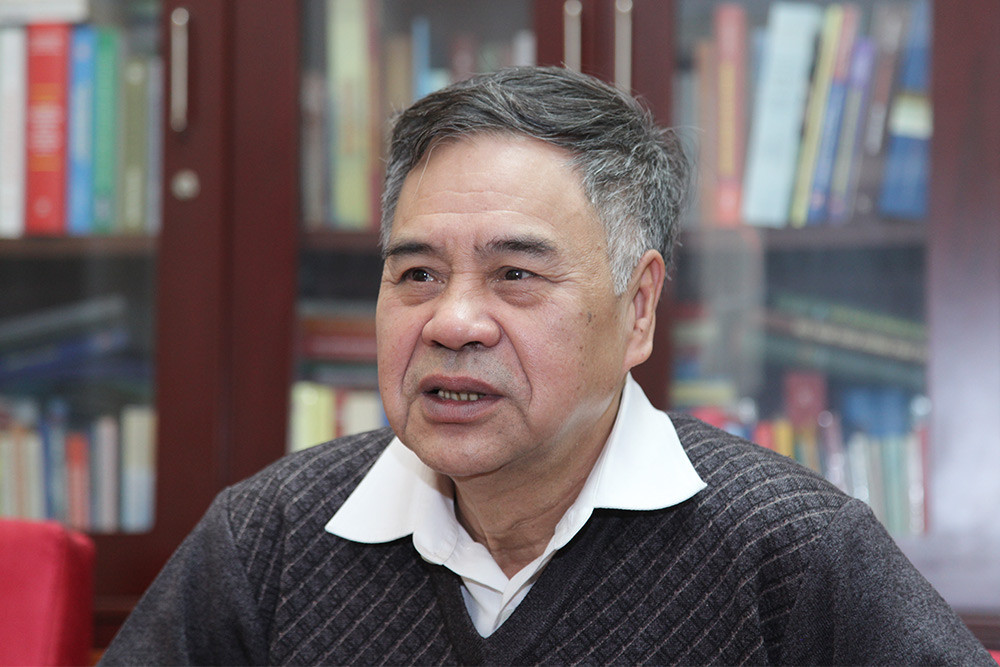
The Party Central Committee has approved a plan to restructure the entire political system, under which the Party, Government, and National Assembly agencies will see significant decreases in the number of units and officials/civil servants.
Four major units of the Party will be cut, while two National Assembly committees and the Legislative Research Institute and National Assembly Television will stop operation. The Government will cut five ministries/branches, three agencies, all 13 of 13 general departments, and thousands of departments and divisions.
The National Assembly is expected to convene an extraordinary session in some days to discuss the organizational restructure of the National Assembly and the Government.
The organization and structure of the political system, after being streamlined, will see a change in the structure and number of positions and will impact the personnel preparation for the upcoming 14th Party Congress.
Former Secretary General of the Central Theoretical Council Nguyen Viet Thong speaks about this below:
Do you think the streamlining of the political system's organizational structure will lead to changes in the number and structure of personnel for the upcoming 14th Party Congress, especially the number of Central Committee members?
Streamlining the organizational units of the Party, Government, and National Assembly means that some officials and leaders will have to retire early, step down from positions, or switch to other jobs.
When two ministries merge, one minister will have to step down; when two departments or divisions merge, only one department or division head will remain. Particularly, as all the 13 general departments are removed, 13 general department heads will no longer exist.
In general, the Party has maintained a stable number of 200 Central Party Committee members (180 full members and 20 alternate members), 17-19 Politburo members, and 11-13 members of the Secretariat.
Though the streamlining will reduce the number of units and leading personnel at the Party, Government, and National Assembly agencies, I believe some certain important ministries, sectors, and committees can have more Central Committee members.
I think that while we cut the number of units, we can increase the number of Party Central Committee members for some important sectors. Two hundred Central Committee members is not too many. The specific numbers will be determined by the Party Congress.
There’s a concern that if the apparatus streamlining cannot be done well, many talented officers may have to leave and this will affect the personnel preparation work for the upcoming Party Congress. Do you think so?
In previous arrangements, it might have happened that talented individuals were ready to leave because they could survive in any environment, while mediocre and below-average people could not exist if they did not ‘cling’ to the state.
In an organizational institution, who can or cannot work effectively is well-known. However, personnel assessment has long been a weak point. Officers’ capabilities are assessed based on feelings and personal relationships at work.
So, the success of the apparatus streamlining this time heavily depends on whether the leaders of agencies are fair enough to keep talented individuals. If leaders are not fair and influenced by groups of interests, or if they keep the "individualism" principle, this will lead to the departure of capable cadres and the stay of low-quality public servants.
There is a fine line between being proactive and reckless; between being cautious, mature, and being conservative. If the officer assessment is not objective, talented individuals can be suppressed, while flatterers are promoted. Thus, personal responsibility of leaders should be emphasized.
The important long-term solution to this problem is building a mechanism on evaluating officials based on job performance rather than vague criteria.
Which factors do you think we should pay high attention to in order to improve personnel quality for the 14th Congress and prevent the situation where some officials and leaders are found to have committed violations after being elected. What factors do you think should be considered?
The lessons from the 13th Congress are still valuable. Right after the Congress, the former Secretary of the Binh Duong Party Committee Tran Van Nam was prosecuted, which indicated that the cadre screening process was not really effective. To date, many high-ranking officials, including Central Committee members and Politburo members, have been disciplined.
Previously, we followed a three-step personnel assignment; and now, it's a five-step process, but violations still occur. The problem doesn’t lie in the process but in those who implement it.
Thu Hang